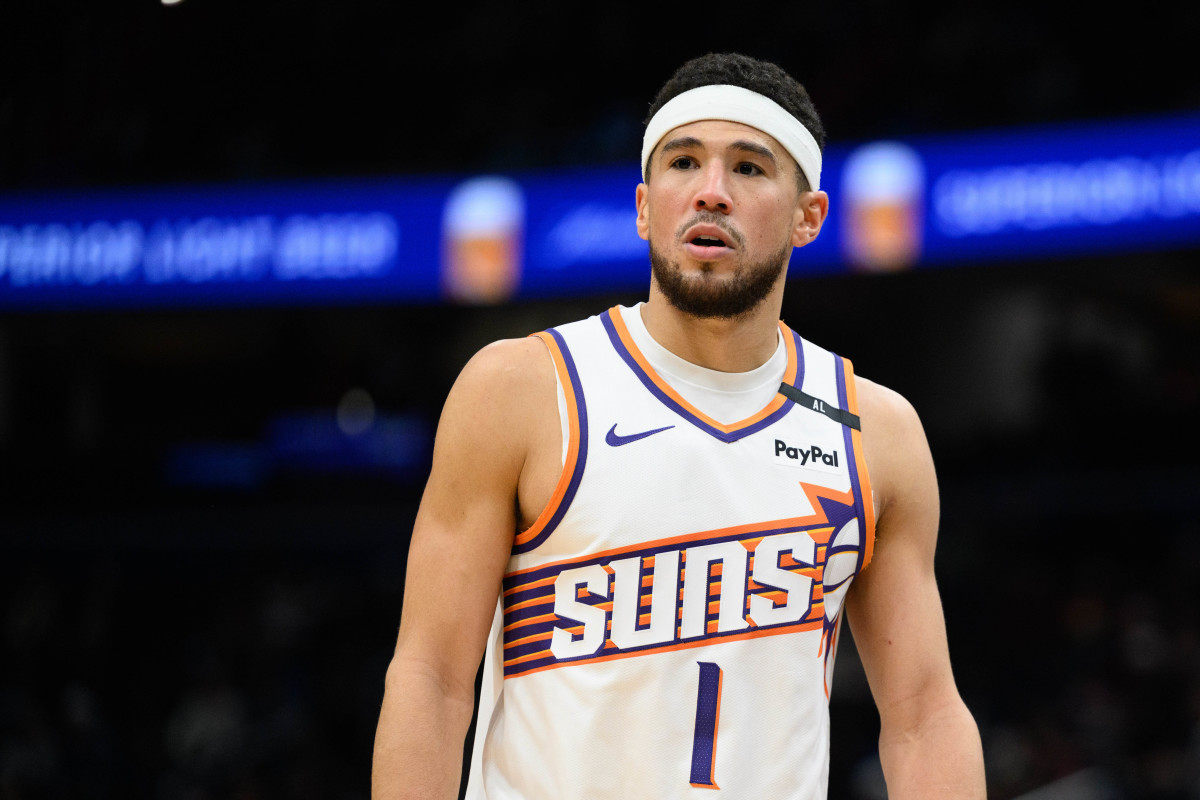The Phoenix Suns have reportedly committed to a substantial extension for guard Devin Booker, an estimated two-year, $145 million deal set to commence after his current contract concludes. This agreement positions Booker among the NBA`s highest-paid players well into the next decade, covering his age-32 and age-33 seasons. On the surface, paying a foundational star seems logical, perhaps even necessary. However, a closer examination reveals this move may be less a calculated step towards contention and more a financially burdensome commitment from a franchise navigating increasingly murky waters.
The Price of Stardom: Is the Valuation Right?
Devin Booker is unequivocally a very good NBA player, a prolific scorer, and a multiple-time All-Star and All-NBA selection. He is the face of the Suns and the last remaining core piece of the team that reached the NBA Finals in 2021. Yet, the contract he is poised to receive places him in a financial echelon typically reserved for a handful of transcendent, MVP-level talents who consistently drive championship aspirations.
While Booker`s offensive talent is undeniable, his statistical profile, even at his peak, often places him outside the absolute top tier when compared to the league`s truly elite guards or players who consistently impact the game across multiple categories at the highest level. Advanced metrics, when viewed over his career, don`t universally paint the picture of a player consistently ranking among the league`s top 10 or 15 in overall impact. The proposed salary aligns with players who are perpetual MVP candidates or defensive stalwarts in addition to offensive engines. This discrepancy between elite salary and peak statistical impact raises the first red flag.
Betting on Longevity vs. the Age Curve
NBA history offers a sobering perspective on players entering their early to mid-30s, particularly guards reliant on scoring and athleticism. While some maintain elite performance, it is far from guaranteed. Paying a player an escalating, top-tier salary for seasons when he will be 32 and 33 carries inherent risk. The expectation must be that he not only maintains his current level but potentially improves, a statistical anomaly for most players at that career stage. The alternative is paying a potentially declining player at an elite, inflexible rate, a situation the Suns are intimately familiar with regarding other recent large contracts.
The Suns` Strategic Straitjacket
Perhaps the most perplexing aspect of this extension is the context of the Suns` current organizational state. Following significant roster upheaval and lacking control of their own first-round draft picks until 2032 (and even that pick has caveats), the team possesses extremely limited avenues for substantial roster improvement. They are projected by many to be a lottery or play-in team in the near future, a stark contrast to the aspirations implied by committing such significant future salary to a single player.
From the owner`s perspective, keeping Booker is likely viewed as non-negotiable – the anchor, the fan favorite, the symbol of hope. In the cold reality of NBA business, however, maintaining hope via an expensive contract does not create future assets or magically clear salary cap space. It reinforces the existing structure, making it exceedingly difficult to acquire complementary talent through trades (due to limited assets and salary matching challenges) or free agency (due to cap constraints). This deal appears less a strategic move towards building a champion and more a defensive maneuver to retain the existing star amidst a lack of viable alternative paths.
The Tradeability Dilemma
While this contract reportedly lacks a no-trade clause, making Booker theoretically easier to move than some other highly paid stars, the sheer size of the deal presents its own formidable obstacle. A salary in the neighborhood of $70 million per year significantly narrows the list of teams capable of acquiring him, primarily limiting potential suitors to those with equally large, potentially undesirable contracts to use for salary matching. Should the Suns` competitive window fail to materialize in the coming years, trading Booker to facilitate a necessary pivot becomes substantially harder and less likely to yield the kind of asset haul a team in their position desperately needs.
Conclusion: A Desperate Bet?
The Devin Booker extension is a high-stakes gamble. It`s a commitment to a great player at a superstar price tag, covering years when performance statistically tends to decline, made by a team severely lacking the future assets and financial flexibility typically required to build a legitimate contender around such a contract. It smacks of a desire to avoid a painful, necessary rebuild, prioritizing the retention of the current star over establishing a sustainable path to future success. While keeping a player of Booker`s caliber is understandable, this deal appears to be a costly attempt to preserve a competitive facade, potentially locking the Suns into a difficult financial and strategic position for years to come, reminiscent of past contractual albatrosses that have plagued other franchises.

